BMW iX1 vs Vauxhall Grandland – Which one offers the better deal?
Two cars, one duel: BMW iX1 meets Vauxhall Grandland.
Which one wins in performance, efficiency and value for money? Find out now!
Costs and Efficiency:
When it comes to price and running costs, the biggest differences usually appear. This is often where you see which car fits your budget better in the long run.
Vauxhall Grandland has a noticeable advantage in terms of price – it starts at 32600 £, while the BMW iX1 costs 41800 £. That’s a price difference of around 9266 £.
In terms of energy consumption, the advantage goes to the BMW iX1: with 15.80 kWh per 100 km, it’s hardly perceptible more efficient than the Vauxhall Grandland with 16.90 kWh. That’s a difference of about 1.10 kWh.
As for range, the Vauxhall Grandland performs slightly better – achieving up to 523 km, about 60 km more than the BMW iX1.
Engine and Performance:
Power, torque and acceleration are the classic benchmarks for car enthusiasts – and here, some clear differences start to show.
When it comes to engine power, the Vauxhall Grandland has a barely noticeable edge – offering 325 HP compared to 313 HP. That’s roughly 12 HP more horsepower.
In acceleration from 0 to 100 km/h, the BMW iX1 is slight quicker – completing the sprint in 5.60 s, while the Vauxhall Grandland takes 6.10 s. That’s about 0.50 s faster.
In terms of top speed, the Vauxhall Grandland performs slightly better – reaching 220 km/h, while the BMW iX1 tops out at 180 km/h. The difference is around 40 km/h.
There’s also a difference in torque: Vauxhall Grandland pulls hardly perceptible stronger with 509 Nm compared to 494 Nm. That’s about 15 Nm difference.
Space and Everyday Use:
Cabin size, boot volume and payload all play a role in everyday practicality. Here, comfort and flexibility make the difference.
Both vehicles offer seating for 5 people.
In curb weight, Vauxhall Grandland is a bit lighter – 1675 kg compared to 1940 kg. The difference is around 265 kg.
In terms of boot space, the Vauxhall Grandland offers slightly more room – 550 L compared to 490 L. That’s a difference of about 60 L.
In maximum load capacity, the Vauxhall Grandland performs slight better – up to 1645 L, which is about 150 L more than the BMW iX1.
When it comes to payload, Vauxhall Grandland slightly takes the win – 568 kg compared to 495 kg. That’s a difference of about 73 kg.
Who wins the race?
The Vauxhall Grandland proves to be leaves the rival little chance and therefore becomes our DriveDuel Champion!
Vauxhall Grandland is the better all-rounder in this comparison.
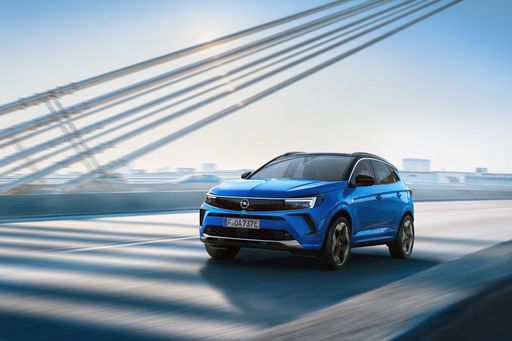
Vauxhall Grandland
BMW iX1
The BMW iX1 stands out as a versatile addition to the electric vehicle market, seamlessly combining compact dimensions with advanced electric technology. Its sophisticated design elements and premium interiors ensure a luxurious driving experience, while the vehicle's performance focuses on delivering both efficiency and agility. With enhanced connectivity features and an emphasis on sustainability, this model represents a significant step forward in BMW's commitment to a greener future.
details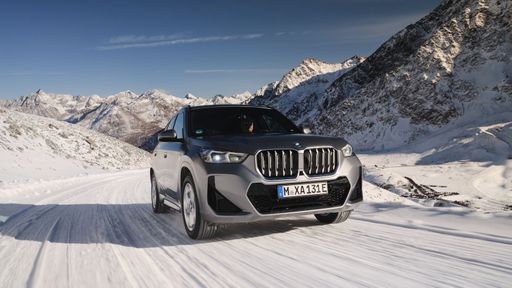 @ press.bmwgroup.com
@ press.bmwgroup.com
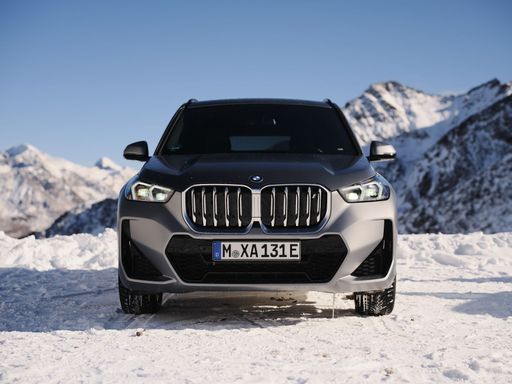 @ press.bmwgroup.com
@ press.bmwgroup.com
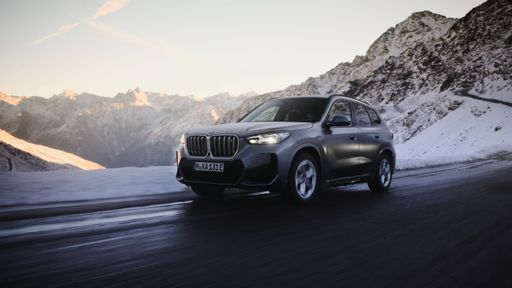 @ press.bmwgroup.com
@ press.bmwgroup.com
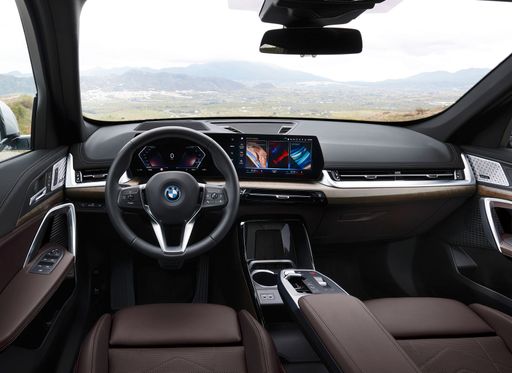 @ press.bmwgroup.com
@ press.bmwgroup.com
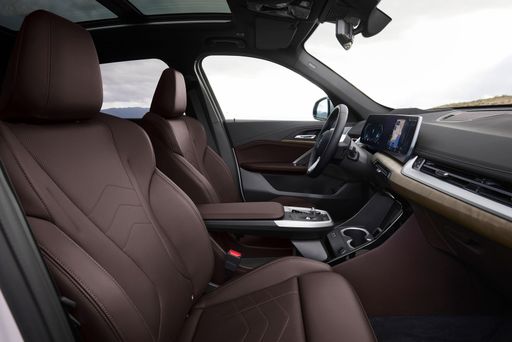 @ press.bmwgroup.com
@ press.bmwgroup.com
Vauxhall Grandland
The Opel Grandland offers a blend of style and practicality, making it an appealing choice for those seeking a versatile SUV. Its sleek design is complemented by a comfortable and spacious interior, providing an enjoyable driving experience for both short commutes and long journeys. Advanced technology and safety features enhance the overall appeal, ensuring drivers feel confident and connected on the road.
details @ media.stellantis.com
@ media.stellantis.com
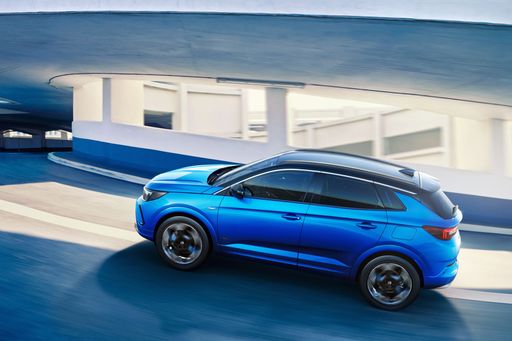 @ media.stellantis.com
@ media.stellantis.com
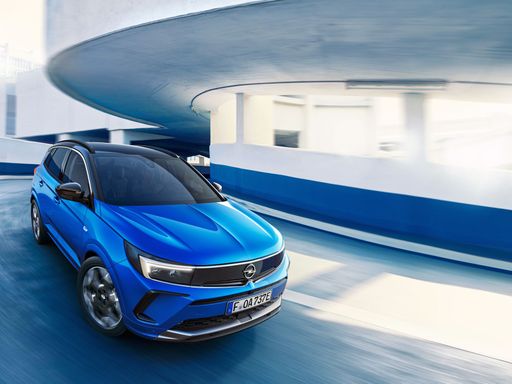 @ media.stellantis.com
@ media.stellantis.com
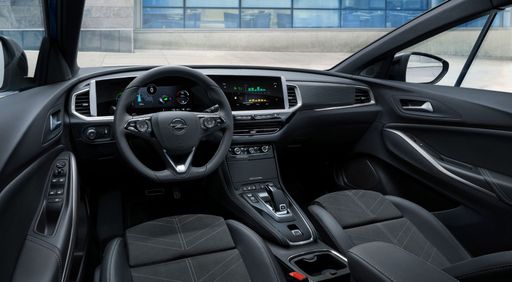 @ media.stellantis.com
@ media.stellantis.com

|

|
|
|
|
Costs and Consumption |
|
|---|---|
|
Price
41800 - 54600 £
|
Price
32600 - 51400 £
|
|
Consumption L/100km
-
|
Consumption L/100km
2.6 - 5.6 L
|
|
Consumption kWh/100km
15.8 - 17.1 kWh
|
Consumption kWh/100km
16.9 - 18 kWh
|
|
Electric Range
436 - 463 km
|
Electric Range
82 - 523 km
|
|
Battery Capacity
64.80 kWh
|
Battery Capacity
-
|
|
co2
0 g/km
|
co2
0 - 126 g/km
|
|
Fuel tank capacity
-
|
Fuel tank capacity
55 L
|
Dimensions and Body |
|
|---|---|
|
Body Type
SUV
|
Body Type
SUV
|
|
Seats
5
|
Seats
5
|
|
Doors
5
|
Doors
5
|
|
Curb weight
1940 - 2085 kg
|
Curb weight
1675 - 2325 kg
|
|
Trunk capacity
490 L
|
Trunk capacity
485 - 550 L
|
|
Length
4500 mm
|
Length
4650 mm
|
|
Width
1845 mm
|
Width
1905 - 1934 mm
|
|
Height
1616 mm
|
Height
1665 mm
|
|
Max trunk capacity
1495 L
|
Max trunk capacity
1580 - 1645 L
|
|
Payload
495 kg
|
Payload
425 - 568 kg
|
Engine and Performance |
|
|---|---|
|
Engine Type
Electric
|
Engine Type
Electric, Petrol MHEV, Plugin Hybrid
|
|
Transmission
Automatic
|
Transmission
Automatic
|
|
Transmission Detail
Reduction Gearbox
|
Transmission Detail
Dual-Clutch Automatic, Reduction Gearbox
|
|
Drive Type
Front-Wheel Drive, All-Wheel Drive
|
Drive Type
Front-Wheel Drive, All-Wheel Drive
|
|
Power HP
204 - 313 HP
|
Power HP
145 - 325 HP
|
|
Acceleration 0-100km/h
5.6 - 8.6 s
|
Acceleration 0-100km/h
6.1 - 10.2 s
|
|
Max Speed
170 - 180 km/h
|
Max Speed
170 - 220 km/h
|
|
Torque
250 - 494 Nm
|
Torque
230 - 509 Nm
|
|
Number of Cylinders
-
|
Number of Cylinders
3 - 4
|
|
Power kW
150 - 230 kW
|
Power kW
107 - 239 kW
|
|
Engine capacity
-
|
Engine capacity
1199 - 1598 cm3
|
General |
|
|---|---|
|
Model Year
2022 - 2023
|
Model Year
2024 - 2025
|
|
CO2 Efficiency Class
A
|
CO2 Efficiency Class
A, D, B
|
|
Brand
BMW
|
Brand
Vauxhall
|
Is the BMW iX1 offered with different drivetrains?
The BMW iX1 is available as Front-Wheel Drive or All-Wheel Drive.
The prices and data displayed are estimates based on German list prices and may vary by country. This information is not legally binding.
